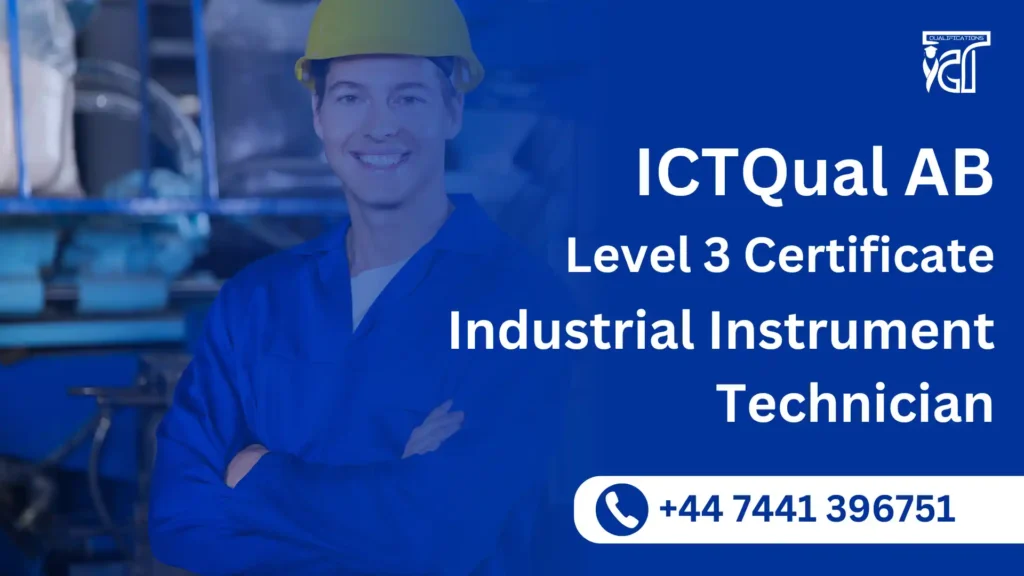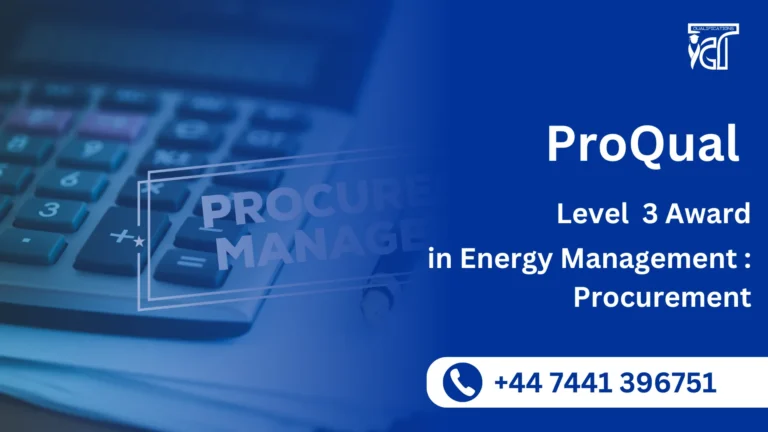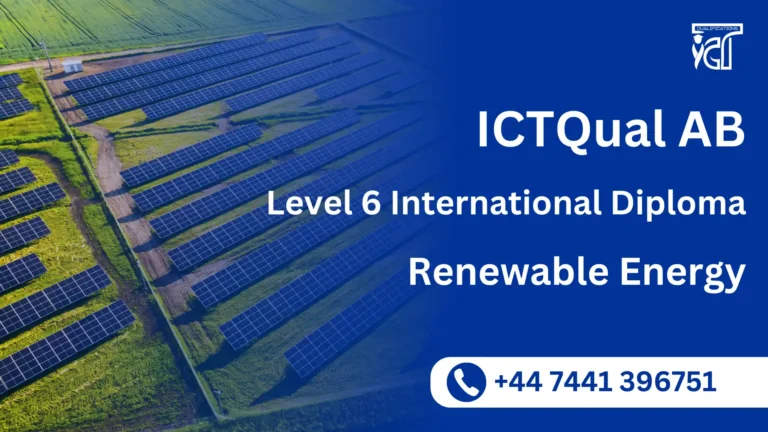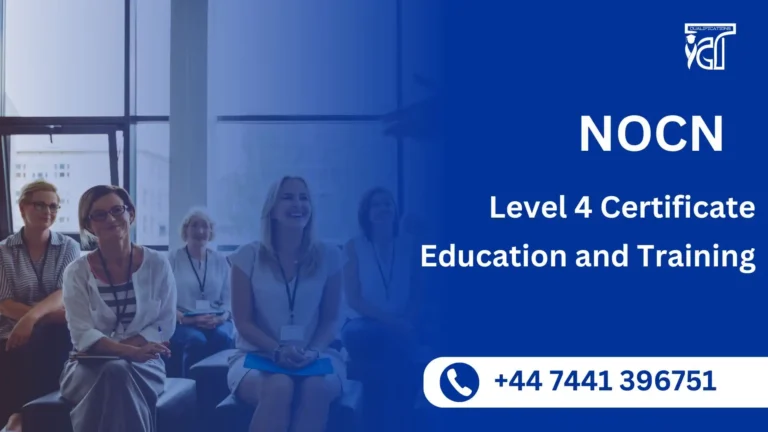The ICTQual AB Level 3 Certificate in Industrial Instrument Technician is designed to equip learners with the technical expertise and practical skills required to operate, maintain, and troubleshoot industrial instrumentation systems. This qualification provides a strong foundation in instrumentation principles, control systems, and calibration techniques, making it ideal for individuals seeking to enter or advance within the industrial automation and process control sectors.
Learners will benefit from a blend of theoretical instruction and hands-on training, covering essential topics such as pressure, temperature, flow, and level measurement. The course also explores digital and analog signal processing, ensuring participants gain a comprehensive understanding of both traditional and modern instrumentation practices.
A strong emphasis is placed on safety standards, industry regulations, and diagnostic procedures. By working through real-world scenarios and case studies, learners develop the problem-solving and decision-making skills required to perform effectively in demanding industrial environments.
This qualification is particularly suitable for aspiring technicians, maintenance personnel, and professionals transitioning into instrumentation roles. It provides the knowledge and confidence needed to succeed in industries where precision, reliability, and efficiency are critical.
Serving as a stepping stone toward higher-level qualifications, the course also supports career progression in sectors such as oil and gas, manufacturing, energy, and water treatment. Whether learners are starting their journey or upskilling for new opportunities, this certificate offers a comprehensive pathway to becoming a certified Industrial Instrument Technician.
In conclusion, the ICTQual AB Level 3 Certificate in Industrial Instrument Technician offers a comprehensive pathway for learners to gain both technical expertise and industry recognition. By combining theory with practical application, the course not only prepares participants for immediate employment but also lays the groundwork for long-term career growth and further study. With its international relevance and focus on real-world skills, this qualification is an excellent choice for anyone committed to building a successful future in industrial instrumentation and process control.
ICTQual AB Level 3 Certificate in Industrial Instrument Technician
This qualification, the Level 3 Certificate in Industrial Instrument Technician, consists of 6 mandatory units.
- Fundamentals of Industrial Instrumentation
- Process Variables: Pressure, Temperature, Flow, and Level
- Instrument Calibration and Testing Techniques
- Industrial Sensors, Transducers, and Control Valves
- Programmable Logic Controllers (PLCs) and Process Automation
- Maintenance, Troubleshooting, and Industrial Safety
Learning Outcomes for the Level 3 Certificate in Industrial Instrument Technician:
Fundamentals of Industrial Instrumentation
- Understand the basic principles and scope of industrial instrumentation within modern industries.
- Explain the role of instrumentation in monitoring, controlling, and optimising industrial processes.
- Identify different types of instruments and their applications in various sectors.
- Demonstrate knowledge of measurement systems, accuracy, precision, and error analysis.
- Recognise the importance of standardisation, codes, and international practices in instrumentation.
- Apply fundamental electrical and electronic concepts relevant to instrumentation systems.
- Develop an appreciation of the link between instrumentation, automation, and industrial efficiency.
- Build a foundation for advanced study in process control and instrumentation technologies.
Process Variables: Pressure, Temperature, Flow, and Level
- Define and explain the four key process variables and their significance in industrial operations.
- Describe the principles and methods used to measure pressure, temperature, flow, and level.
- Compare different types of sensors and devices used for each process variable.
- Analyse the impact of process variables on system performance, safety, and quality.
- Apply knowledge of process variables to select appropriate measurement instruments.
- Interpret data from process variable measurements to support decision-making.
- Understand calibration requirements for process variable instruments.
- Relate process variable control to overall process optimisation and energy efficiency.
Instrument Calibration and Testing Techniques
- Explain the purpose and importance of calibration in maintaining instrument accuracy.
- Identify international standards and procedures for calibration and testing.
- Perform step-by-step calibration of common industrial instruments.
- Use calibration tools and equipment safely and effectively.
- Record, interpret, and evaluate calibration results for compliance and quality assurance.
- Troubleshoot errors and deviations identified during calibration.
- Understand the role of preventive maintenance in reducing calibration failures.
- Develop professional competence in documenting calibration and test reports.
Industrial Sensors, Transducers, and Control Valves
- Differentiate between sensors, transducers, and actuators in industrial applications.
- Explain the working principles of common industrial sensors and transducers.
- Select appropriate sensors for specific process requirements.
- Understand the design, function, and operation of control valves.
- Analyse the role of control valves in regulating process variables.
- Apply knowledge of valve characteristics, sizing, and selection criteria.
- Recognise common faults in sensors and valves and propose corrective actions.
- Integrate sensors and control valves into automated control systems.
Programmable Logic Controllers (PLCs) and Process Automation
- Understand the architecture and components of PLC systems.
- Explain the role of PLCs in industrial automation and process control.
- Develop basic PLC programming skills using ladder logic or equivalent languages.
- Configure input and output devices for PLC-based systems.
- Apply PLCs to monitor and control industrial processes.
- Integrate PLCs with sensors, actuators, and communication networks.
- Troubleshoot common PLC hardware and software issues.
- Appreciate the role of PLCs in Industry 4.0 and smart manufacturing.
Maintenance, Troubleshooting, and Industrial Safety
- Understand the principles of preventive, predictive, and corrective maintenance.
- Apply systematic troubleshooting techniques to diagnose instrument faults.
- Use diagnostic tools and test equipment effectively in maintenance tasks.
- Recognise the importance of safety standards and regulations in instrumentation work.
- Implement safe working practices when handling instruments and control systems.
- Identify potential hazards in industrial environments and propose mitigation strategies.
- Document maintenance and troubleshooting activities in line with industry standards.
The ICTQual AB Level 3 Certificate in Industrial Instrument Technician provides learners with a strong mix of technical knowledge, practical expertise, and industry recognition. Below are the key benefits, organized under clear headings for clarity and impact.
1. Career Advancement
- Opens doors to roles in oil & gas, energy, manufacturing, and process industries
- Enhances employability with a recognized Level 3 qualification
- Provides a competitive edge in technical recruitment and promotions
- Increases opportunities for international employment in high-demand sectors
- Builds a pathway toward supervisory and leadership roles with further training
2. Practical Skills Development
- Gain hands-on expertise in calibration, measurement, and control systems
- Learn to troubleshoot and maintain industrial instrumentation effectively
- Apply knowledge through real-world case studies and scenarios
- Develop problem-solving and diagnostic skills for complex technical challenges
- Strengthen workplace readiness through practical workshops and applied learning
3. Academic and Professional Progression
- Acts as a stepping stone to higher-level qualifications in instrumentation and automation
- Builds a strong foundation for advanced technical certifications
- Supports continuous professional development (CPD) goals
- Provides eligibility for further study in engineering and process control disciplines
- Enhances academic credibility for learners aiming to pursue higher education pathways
4. Industry-Relevant Knowledge
- Covers essential topics such as pressure, flow, temperature, and level measurement
- Aligns with international safety and regulatory standards
- Prepares learners for modern industrial environments
- Introduces both digital and analog signal processing for versatile expertise
- Ensures learners are equipped with knowledge applicable across multiple industries
5. Recognition and Credibility
- Earn an internationally respected certification valued by employers
- Demonstrates commitment to technical excellence and professional growth
- Strengthens credibility in both local and global job markets
- Provides recognition that supports career mobility across industries and countries
- Establishes learners as competent professionals aligned with global industry standards
The ICTQual AB Level 3 Certificate in Industrial Instrument Technician is designed for individuals who are motivated to build a career in industrial instrumentation, automation, and process control. The course is suitable for learners who are eager to combine technical knowledge with practical skills, and who aspire to work in industries where precision, safety, and efficiency are critical.
Key Characteristics of the Ideal Learner
- Individuals seeking entry into technical roles within oil & gas, energy, manufacturing, or process industries
- Technicians or maintenance staff aiming to upskill and gain formal recognition of their expertise
- Learners with a strong interest in instrumentation, calibration, and control systems
- Those who value hands-on, practical training alongside theoretical knowledge
- Professionals looking to progress to higher-level qualifications or supervisory roles in industrial environments
Academic and Professional Background
- Suitable for learners with a basic understanding of science, mathematics, or engineering principles
- Open to individuals with prior vocational or technical training who wish to specialize in instrumentation
- Ideal for professionals transitioning from related fields such as electrical, mechanical, or process engineering
Career Aspirations
- Aspiring Industrial Instrument Technicians seeking a recognized qualification
- Learners aiming for career progression into senior technician, supervisory, or specialist roles
The ICTQual AB Level 3 Certificate in Industrial Instrument Technician provides learners with a strong platform for both career advancement and further study. Successful completion of this qualification opens multiple pathways for professional growth, higher-level training, and specialized roles within the industrial and process sectors.
Academic Progression
- Progression to higher-level qualifications such as Level 4 or Level 5 Diplomas in Instrumentation, Process Control, or Engineering
- Opportunity to specialize in advanced areas like automation, robotics, control systems, or industrial safety
- Foundation for pursuing internationally recognized technical certifications and professional memberships
- Eligibility to continue studies in higher education programs related to engineering and industrial technology
- Strengthened academic profile for learners aiming to transition into supervisory or managerial training programs
Career Progression
- Entry into technical roles such as Industrial Instrument Technician, Maintenance Technician, or Process Control Technician
- Pathway to supervisory, senior technician, or team leader positions with experience and further training
- Opportunities across industries including oil & gas, energy, water treatment, petrochemicals, and manufacturing
- Increased employability in global markets where skilled instrumentation professionals are in high demand
- Potential to transition into specialized roles such as Calibration Specialist, Automation Technician, or Control Systems Engineer
Professional Development
- Builds a strong base for continuous professional development (CPD) in industrial instrumentation and process control
- Enhances professional credibility and recognition in both local and international job markets
- Supports long-term career growth by aligning with global industry standards and best practices
- Encourages lifelong learning and adaptability in rapidly evolving industrial environments
- Provides a platform for networking and professional recognition through industry associations and technical bodies
Entry Requirements
To enroll in the ICTQual AB Level 3 Certificate in Industrial Instrument Technician, learners must meet the following entry requirements. These criteria ensure that participants are prepared to succeed in both the theoretical and practical aspects of the course.
Minimum Age
- Learners must be at least 16 years old at the time of enrollment.
- This ensures maturity and readiness for technical training in industrial environments.
Educational Background
- A secondary school qualification or equivalent is recommended.
- Learners should have a basic understanding of mathematics, science, or engineering principles.
- Candidates with vocational or technical training in related fields are encouraged to apply.
Work Experience
- Prior work experience is not mandatory, making the course accessible to new entrants.
- However, individuals with experience in electrical, mechanical, or process industries will find the course particularly beneficial.
Language Proficiency
- Learners must demonstrate proficiency in English (or the language of instruction).
- Ability to read, write, and communicate effectively is essential for understanding technical materials, safety standards, and assessment tasks.
- Applicants may be required to provide evidence of language proficiency through prior qualifications or equivalent assessments.
Additional Recommendations
- A strong interest in industrial instrumentation, calibration, and process control.
- Willingness to engage in both theoretical learning and hands-on practical training.
- Commitment to professional development and career progression in technical industries.
Register Now
Qualification Process
Qualification Process for the ICTQual AB Level 3 Certificate in Industrial Instrument Technician
- Self-Assessment:
Begin by evaluating your eligibility to ensure you meet the qualification requirements, including work experience, knowledge, and language proficiency. - Registration:
Complete your registration by submitting the required documents, including a scanned copy of a valid ID, and paying the registration fee. - Induction:
An assessor will conduct an induction to confirm your eligibility for the course and explain the evidence requirements. If you do not meet the criteria, your registration will be cancelled, and the fee will be refunded. - Assignments & Evidence Submission:
Provide all assignments and the necessary evidence based on the assessment criteria outlined in the course. If you are unsure of the required evidence, consult with the assessor for guidance on the type and nature of evidence needed. - Feedback and Revision:
The assessor will review your submitted evidence and provide feedback. Evidence that meets the criteria will be marked as “Criteria Met,” while any gaps will be identified. You will be asked to revise and resubmit if needed. - Competence Evidence:
Submit final evidence demonstrating that all learning outcomes have been met. This evidence will be marked as “Criteria Met” by the assessor once it is satisfactory. - Internal Quality Assurance (IQA):
The Internal Quality Assurance Verifier (IQA) will review your evidence to ensure consistency, quality, and compliance with standards. - External Verification:
The IQA will submit your portfolio to ICTQUAL AB External Quality Assurance Verifiers (EQA) for final confirmation. The EQA may contact you directly to verify the authenticity of your evidence. - Certification:
Upon successful completion of all checks, ICTQUAL AB will issue your official certificate, confirming that you have attained the ICTQual AB Level 3 Certificate in Industrial Instrument Technician.







